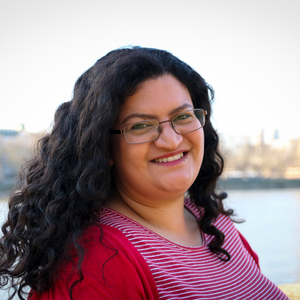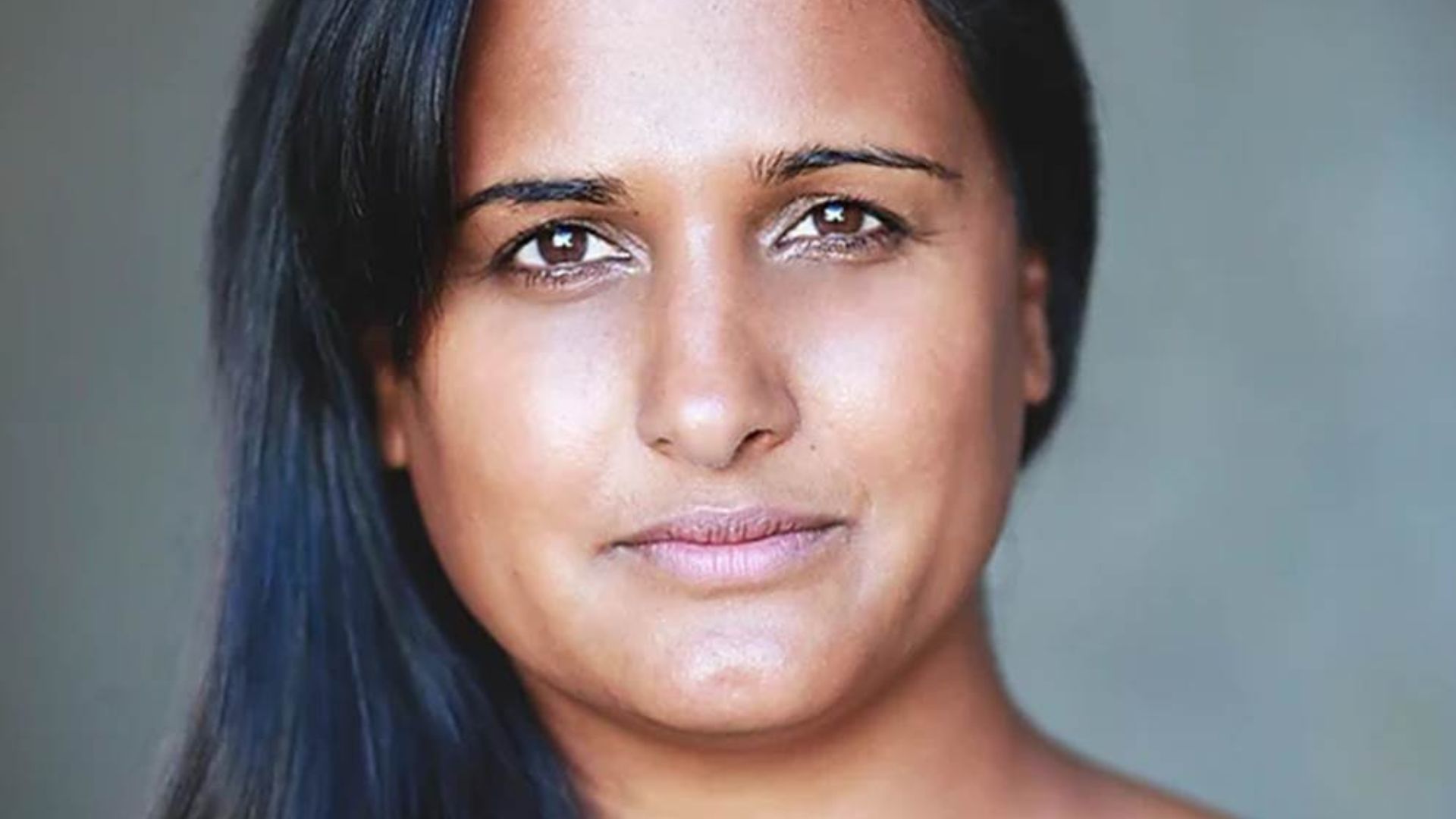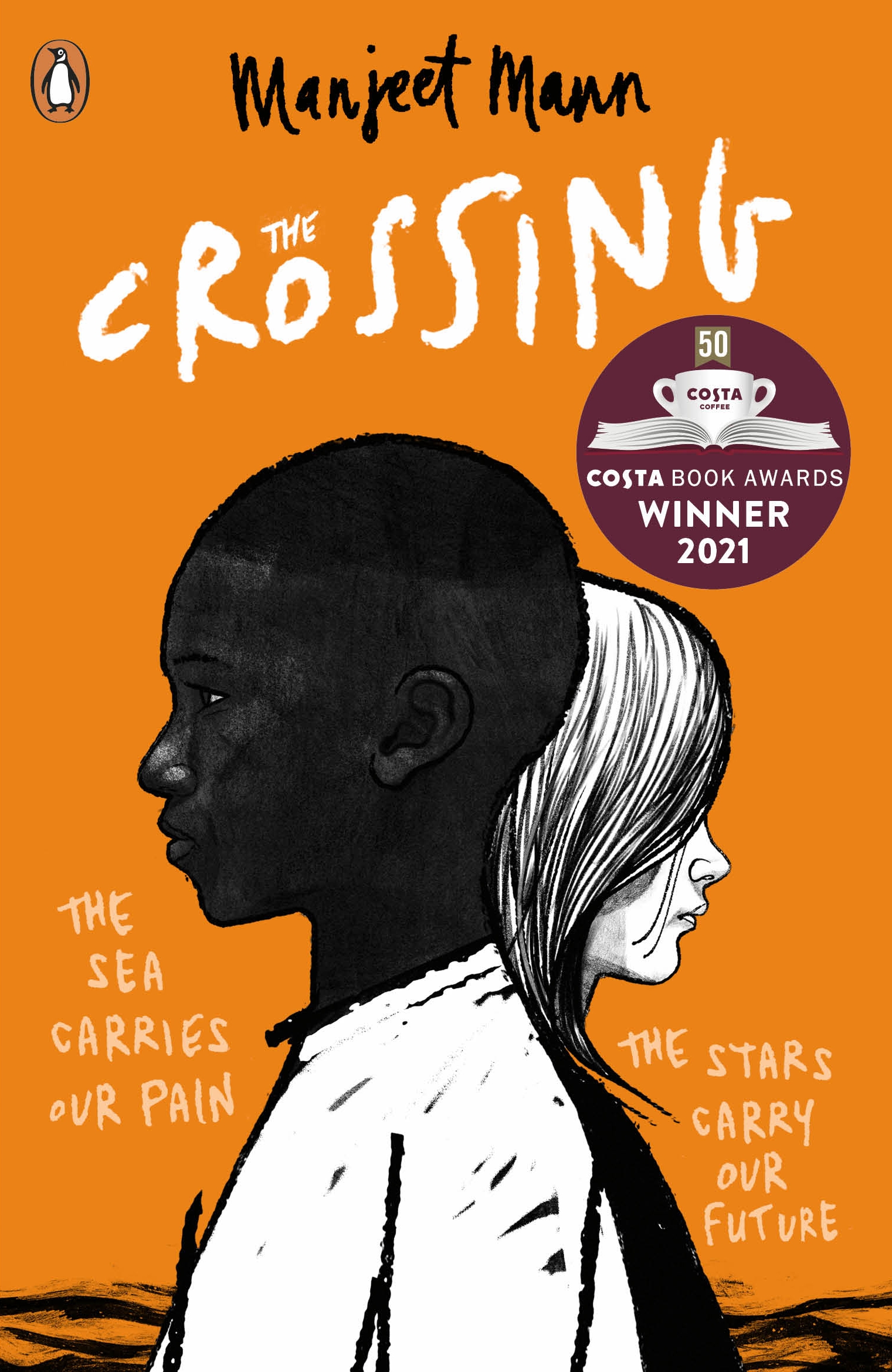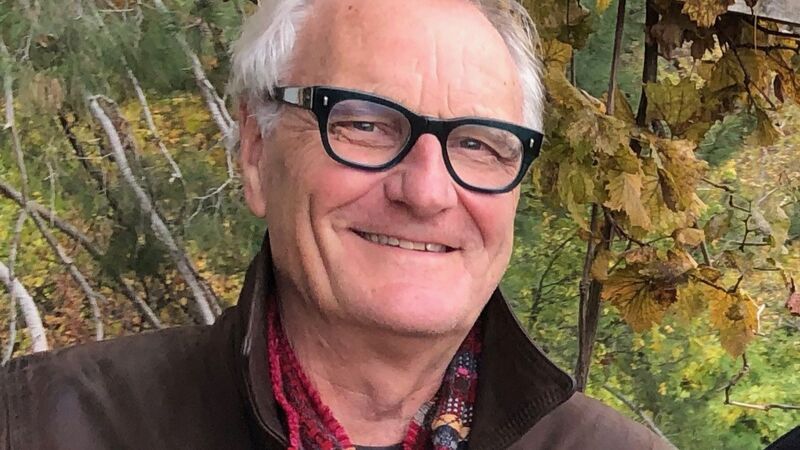You are viewing your 1 free article this month. Login to read more articles.
YA Book Prize shortlist: Manjeet Mann talks about The Crossing
Manjeet Mann answers our questions about her novel The Crossing (Penguin Children’s), a verse novel following two teenagers and the consequences of the refugee crisis, which has been shortlisted for the YA Book Prize 2022.

Caroline is deputy features editor at The Bookseller and chair of the YA Book Prize, as well as being a co-host of children's book radio ...more
 Caroline Carpenter
Caroline CarpenterCaroline is deputy features editor at The Bookseller and chair of the YA Book Prize, as well as being a co-host of children's book radio ...more
How would you describe your book to someone who hasn’t read it?
The Crossing is about two teenagers from opposite worlds, but coming together as one in a story of hope, grief and the search for a better life.
What inspired the The Crossing?
I feel the seeds of the idea were sown in 2015 when I moved to the seaside town of Folkestone. A small town with growing tensions around refugees, unemployment and DFLs (Down From London people) causing gentrification. The unease was tangible and easily taken advantage off by right-wing political parties. This reached a crisis point in 2018 when the number of refugees seeking safety coincided with a spate of far-right protests around the UK. Boats arriving on the shores of Folkestone and Dover were a daily occurrence and the protests in Dover turned violent and brought the town to a standstill.
I have also worked with refugee groups running drama projects for about five years and was running two such community groups around this time. The focus was on storytelling and I would try to purposefully steer clear of talking about upsetting things but soon found out that the group wanted to share their stories. After the protests in Dover and Birmingham the sombre atmosphere within the groups was palpable.
Folkestone also has, understandably, a huge channel swimming community and in 2018 a small festival in the town was showing a series of channel swimming films. This juxtaposed with stories of desperate people arriving in boats after crossing the same stretch of water and police reports into the far-right protest had my head swimming. I wanted to make sense of what I was seeing and I wanted to do something that would help build empathy and understanding.
Which character in the book is your favourite, and why?
I’m not sure I have a favourite to be honest, but if I have to pick one character it would be Tesfaye. Sammy’s friend who is small, mighty and has twice the courage of everyone else. Tesfaye means hope and that is exactly what he represents in the book.
What’s your favourite scene in The Crossing, and why?
I think it would have to be 146 days before. It’s a scene that flows back and forth between Sammy and Nat in Calais. They are so close to meeting in real life but they keep missing each other. It was tricky but fun to build that tension for the reader.
What does being on this year’s YA Book Prize shortlist mean to you?
It’s such an honour to be shortlisted for the YA Book Prize. I’ve followed this prize from the beginning and I can’t quite believe The Crossing has made the shortlist, I’m so grateful to the judges and hope this platform gets The Crossing out to many more readers who might otherwise not have found it.
What’s the best thing about writing for young adults?
I believe teenage years are when a person is at their most sensitive best, willing and ready to learn about new people, places and things. Witnessing the negativity around all the social issues that are presented in The Crossing, there was no question that the book had to be told from the perspective of two teenagers. I wanted to help build empathy and understanding around subjects where that is perhaps lacking and therefore appealing to a YA audience, I felt, would be a good place to start.
What was your favourite book as a teenager?
Does a play count? I knew I wanted to be an actress from about age five but as a teenager it consumed my every thought. I don’t remember reading many novels but I did read lots of plays. My first time in a theatre was age 13. I saw "Pygmalion" at the Birmingham REP. I read that play again and again and again. I understood Eliza. I was Eliza. I wanted to play Eliza. I think that play ignited my passion for reading like nothing else.
What is your top writing tip?
Believe in your voice. Don’t try and write like someone else. Don’t write what you think you "should" be writing. Write the stories YOU want to tell, in your own unique voice. I say this because recently I tied myself in knots thinking I had to change my style and write something more "commercial". I convinced myself the stories I wanted to tell were not good enough and my style wasn’t ‘clever’ enough. I didn’t write a word for six months. So, to the writers out there…don’t concern yourself with what anyone else is doing, or their success. Just do you. It’s good enough. YOU are good enough.
What songs would be on a playlist for your book?
When I was writing the book I listened to the following playlist…"The Land That I Love" by Scott Ainslee, "Follow me" by Moxie Raia and Wyclef Jean, "Running" by Gregory Porter, "Common" and Keyon Harrold, "A Safe Place to Land" by Sara Bareilles and John Legend, "Émigré" by Alela Diane, "Vayan Al Norte" by Eliza Gilkyson,"Bombs Turn into Roses" by Maya Youssef, "Poor Wayfaring Stranger", an American Folk song. They took me on a journey.
Which book, film or TV show would you recommend to someone who enjoyed your book?
I’d recommend "North Star Rising" an animated documentary short told in verse inspired by the true testimonies of four Eritrean refugees who fled their homes to make the dangerous journey across Ethiopia, Sudan and Libya to Europe.
Read the first chapter of The Crossing here.










